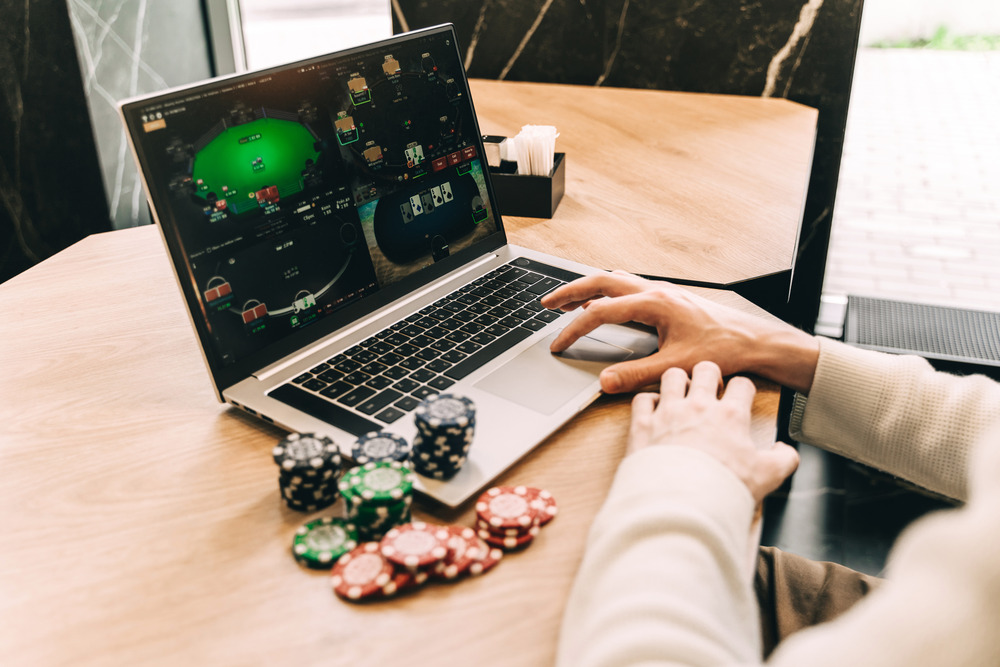Responsible gaming involves making informed decisions to protect both your well-being and financial health. Understanding the rules and odds of the games you play allows for setting realistic expectations and avoiding common pitfalls.
It is not only crucial to know when to engage in gaming but also to recognize when to stop. Implementing strict time and budget limits can help maintain a balance between entertainment and responsibility.
However, these boundaries can sometimes become blurred. Recognizing the signs of problematic gaming behavior is essential for taking timely action. Signs may include spending more time or money on gaming than initially planned, neglecting personal or professional responsibilities, and experiencing stress or anxiety related to gaming activities.
By identifying these indicators early, individuals can seek support and make necessary adjustments to their gaming habits.
Further exploration into responsible gaming can provide additional strategies and resources to help maintain healthy gaming practices.
Understanding Responsible Gaming
Understanding responsible gaming is essential for anyone who enjoys gambling. It means making informed decisions to ensure that your gambling remains a fun activity.
Here are key aspects:
-
Self-Awareness: Know your limits and recognize when you might be developing a problem.
-
Education: Understand the rules and odds of the games you play.
-
Budget Management: Set a budget and stick to it, ensuring you only gamble with money you can afford to lose.
-
Seeking Help: Don’t hesitate to seek assistance if gambling starts affecting your life negatively.
Setting Time Limits
Knowing how to manage your time while gambling is just as important as understanding your limits and budget. Setting time limits helps you stay in control and prevents excessive play.
Here are some strategies:
-
Set a Timer: Use your phone or a dedicated timer. Decide beforehand how long you’ll play.
-
Breaks: Take regular breaks to refresh your mind. This prevents fatigue and poor decisions.
-
Plan Your Day: Allocate specific times for gambling, ensuring it doesn’t interfere with other responsibilities.
-
Use Casino Tools: Many online casinos offer tools to set time limits on your sessions.
Managing Your Budget
Creating a budget for your gambling activities is essential to maintaining financial control and ensuring the fun doesn’t come at a high cost. Start by determining how much money you can afford to lose without impacting your essential expenses. This amount should be disposable income, not funds needed for bills, groceries, or savings.
To manage your budget effectively, follow these steps:
- Set a weekly or monthly gambling limit.
- Use a separate account or wallet for gambling funds.
- Track your spending regularly to avoid overspending.
- Avoid chasing losses by sticking to your budget.
Additionally, consider using budgeting tools or apps to help you maintain control.
Recognizing Risk Factors
Often, recognizing risk factors in your gambling behavior is crucial to maintaining a healthy relationship with this form of entertainment.
Key indicators to watch for include:
-
Frequency: If you find yourself gambling more often, it might be a red flag.
-
Duration: Spending longer periods gambling can signal a problem.
-
Financial Strain: Keep track of money spent. If you’re chasing losses, reevaluate your habits.
-
Emotional Response: Feeling anxious or irritable when not gambling is concerning.
-
Neglecting Responsibilities: Ignoring work, family, or social commitments can indicate an issue.
Psychological Impact of Gaming
Understanding the risk factors is just the beginning. You need to grasp the psychological impact gaming can have. Excessive gaming can lead to:
-
Increased Stress: Prolonged play can cause mental fatigue and heightened stress levels.
-
Isolation: Spending too much time gaming can lead to social withdrawal, reducing face-to-face interactions.
-
Mood Changes: You might experience mood swings, irritability, or even depression if gaming becomes overwhelming.
-
Sleep Disruption: Late-night gaming can interfere with your sleep patterns, leading to fatigue.
To maintain balance, monitor your gaming habits and take breaks. Recognize when gaming affects your emotions and daily life.
Aim for moderation, and prioritize real-life connections and activities. By staying aware, you can enjoy gaming without negative consequences.
Seeking Support and Resources
If you find that gaming is starting to take a toll on your well-being, don’t hesitate to seek support and resources. There are several ways to get help:
-
Support Groups: Join online or local groups where you can share experiences and get advice.
-
Professional Help: Consult a therapist or counselor who specializes in gaming addiction.
-
Hotlines: Call gaming helplines for immediate support and guidance.
-
Educational Resources: Read articles, watch videos, and take online courses to understand healthy gaming habits.
-
Parental Controls: Use software to monitor and limit gaming time.
Taking these steps can help you regain control and ensure gaming remains a positive part of your life.
Balancing Gaming and Life
Balancing gaming and life is crucial for maintaining overall well-being. You need to manage your time effectively to avoid negative impacts on your health, relationships, and responsibilities.
Here are some tips to help you balance:
-
Set Limits: Allocate specific hours for gaming, and stick to them.
-
Prioritize Tasks: Ensure your daily responsibilities, like homework and chores, come first.
-
Take Breaks: Regularly step away from the screen to rest your eyes and mind.
-
Engage in Other Activities: Involve yourself in physical exercise, social events, or hobbies.
Conclusion
To embrace responsible gaming, you need to make informed decisions and set clear limits on time and money. Understand the rules and odds, recognize potential warning signs, and seek support when necessary. By balancing gaming with other life responsibilities, you can enjoy it as a form of entertainment without it becoming problematic. Remember, staying aware of your habits and taking proactive steps will ensure gaming remains a positive experience in your life.

